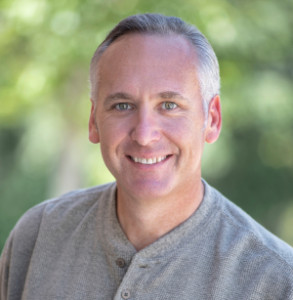Around the World in Eighty Days
Description
Vocal Characteristics
Language
EnglishVoice Age
Middle Aged (35-54)Accents
British (England - Cockney, Estuary, East End) British (General)Transcript
Note: Transcripts are generated using speech recognition software and may contain errors.
Jason Markiewicz. Narrator This Is from I Am Not Spark by Leonard Nimoy. I remember sitting in the dark movie house on Saturday afternoon on the screen was a great performance in one of the classic roles of all time, Charles Loughton bent over carrying a grotesque wait, the hump on his back. He was a freak, horrible mistake of nature hidden away in the bell towers of Notre Dom, the awful disfigured creature called Quasimodo, the Hunchback of Notre Dom. I watched them put him on public display on a wooden turntable in the cathedral courtyard. They whipped him. I don't remember why. Drunk in public or something like that, the crowd's laughed at him, jeered his pain and his humiliation. Time passed, and he rotated on the turntable, bound to it by the ropes. Then thirst set in, and he cried out water. The crowd laughed again. He cried out for water and that pained, distorted speech. The crowd laughed again, and someone splashed him with the contents of a slop bucket. And then a beautiful thing happened. The lovely as morale tha, although terrified by this awful ugly creature, brought him some water. And later, when the punishment was finished, and quasi, Moto's brother took him back into the cathedral. I heard the words The Hunchback turned his head up toward his brother and with a simple sentence, tore my heart out. She gave me water. I was glad the theatre was dark so that I could cry freely. And I did. This is from an accidental Cowboy by Jameson Parker. Cookie woke us limping through the camp, yelling Rise and shine, rise and shine, and instantly I could smell the indescribably delicious smells of coffee and sausage and pancakes. Something about sleeping outside gives you such an appetite that Alpo would smell indescribably delicious and probably go down pretty well, too. But in truth, Cookie knew his stuff. I got Tuffy out of the corral first thing and tied him to my trailer with a bucket of cubes at his feet. It was going to be a long day, and I wanted to be certain he was properly fuelled up. Bruce sent his troops out in different directions to cover different areas. I was to go with him and Cathy and Christopher. We weren't 50 yards from the corrals before Tuffy was in a lather. Tuffy was used as a competitive roping and reining horse. And two things happen when I take him out on the trail. As soon as I mount up, he begins to sweat. This is from nerves all of his young life. He has been pressured to perform, and he is now having to learn that writing can be fun and relaxing. This is what I have been working on during our trail rides. And now, after about half a mile, he begins to calm down and enjoy himself, and the sweat dries up. This is from American Rebel. The Life of Clint Eastwood by Mark Elliott on the heels of his fabulous success with Dirty Harry, without the sure hand of Leonard to guide him and on the advice of the less visionary, more bottom line oriented Bob Daly. Clint signed on once more at Universal Veum Al Paso to star in a John Sturges film. Joe Kidd, a pale faced imitation of the Leonie Westerns with a script by Elmore Leonard Sturges was a journeyman director who had had a string of early successes. Bad Day at Black Rock in 1955 Gunfight at the OK Corral in 1957 and most notably the Great Escape in 1963. Joe Kidd was made amid the groundswell of controversy created by Dirty Harry and slipped in and out of theatres early in 1972 without stirring much interest in either audiences or critics. It was perhaps Justus well, the film didn't work on any level and remains one of Clint's least remembered movies. But the money was good, and it did give him a chance to work with one of his old Army buddies, John Saxon, whose screen career had never blossomed into anything memorable or lasting.
